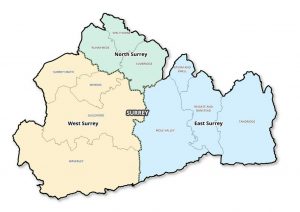PLEASE NOTE FRESH QUOTES FROM SBC HAVE BEEN ADDED. IN BOLD BELOW
Serious concerns over Spelthorne Borough Council’s financial failures have led the Government to appoint commissioners, experienced in taking over bankrupt authorities, to run key functions at the heavily indebted authority.
Spelthorne Borough Council has significant debts that stood at £1.096 billion in March 2023 making it the second worst for a district authority in England, after Woking.
Such is the “severity and size of the challenge at Spelthorne”, the Government has put in place measures that could last for up to five years to try to bring about some level of value for money and financial sustainably.
This includes taking over the council’s operating model and a redesign of services offered to residents.
The commissioners, some of whom have already dealt with crises at Liverpool and Woking, will look to close any budget gaps and reduce Spelthorne’s “exceptionally high level of external borrowing”.
Since May 2022, the Ministry of Housing, Communities and Local Government has monitored several councils with high levels of debt and raised “serious concerns across a number of areas” at Spelthorne.
In particular they highlighted the council’s “poor record” of addressing recommendations from external reviews and had “no confidence” in the council’s ability to make the changes “without significant external support”.
They found an unwarranted “culture of optimism bias” with senior officers lacking “awareness” and being “clouded” to the dangers of its financial situation”, according to a slew of documents released by the Government today, Thursday May 8.
They spoke of strained and deteriorating relationships between senior management and political leadership as well as a lack of trust – with a high number of complaints against members.
Inspectors also found “poor, late and incomplete reporting, together with a lack of audit and a reluctance to accept and act on challenge” that “severely undermined informed decision-making”.
The debt was amassed despite, or perhaps because of a “lack of long-term planning, risk management” and an “overly-optimistic reliance” on property markets” which created an “unsustainable” financial strategy .
Extracts from the report read: “The council’s commercial activities are fragmented and lack a unified strategy, leading to uncoordinated decisions that do not align with broader objectives.
“The council’s large-scale property investments, driven by concerns over funding shortfalls, have exposed it to significant financial risks, especially post-covid.
“The decision-making process was short-sighted and overly optimistic, with risks not fully understood or mitigated.
“Investments are disproportionate to the size of the authority, raising concerns about risk and return considerations.
“The authority has not fully adhered to statutory guidance on local authority investments, and decision-making reports have been inadequate, often lacking key elements and clear financial implications.
“The finance function lacks the structure, staffing, and expertise to manage the authority’s property portfolios effectively.
“The authority financed its property acquisitions with over £1 billion in loans from the Public Works Loan Board, with terms up to 50 years and fixed rates averaging 2.58 per cent.
“This debt is greater than the authority’s core funding equating to over £10,000 per resident.
“While senior officers believe the Authority can service this debt using property revenues, there are significant issues such as property voids, high maintenance costs, and no clear long-term exit strategy.
“Having carefully considered the evidence, together with the representations received, the Secretary of State is confident that there is sufficient evidence to conclude that the authority is failing to comply with its Best Value Duty.”
The commissioners will take over:
- Governance, scrutiny and transparency of strategic decision making
- Financial governance and scrutiny of strategic financial decision
- Strategic financial management
- Commercial decision-making, regeneration, property management, procurement and the management of commercial
- The council’s operating model and redesign of services to achieve value for money and financial sustainability.
- Hiring and firing of senior officers and statutory officers.
Issuing a statement, the council said commissioners will be accountable to the Secretary of State and ‘uphold proper standards and due process and recommend action to the authority’.
Cllr Joanne Sexton, Leader of Spelthorne Borough Council, said: “We will tackle these challenges head-on. I am resolute in restoring Spelthorne’s financial health and will continue to improve our services and work hand-in-hand with the Commissioners to deliver lasting improvements.”
Cllr Chris Bateson, Deputy Leader of Spelthorne Borough Council, added: “We stand united in our commitment to drive value for money, cut borrowing and protect vital services. There is no Plan B – we are all in to secure our Borough’s future.”
The council has gone through many changes in the past five years, having previously been under continuous Conservative control since its inception in 1974. In 2020 the council had its first independent leader when former Tory Ian Harvey crossed the floor. He was replaced that year by the Conservative Cllr John Boughtflower in 2020, the Liberal Democrat Cllr Lawrence Nichols in 2021, Cllr Boughtflower again in 2022. The current leader, the Independent Cllr Joanne Sexton has been in the position since 2023.
She said: “We are determined to address the challenges facing the authority and look forward to working collaboratively with the commissioners to ensure long-term improvement in the areas highlighted.”











